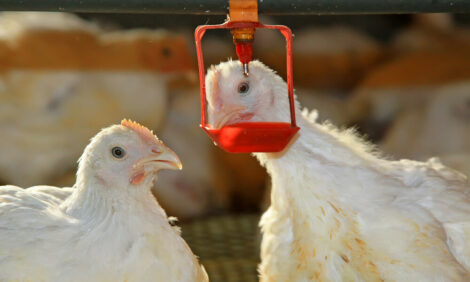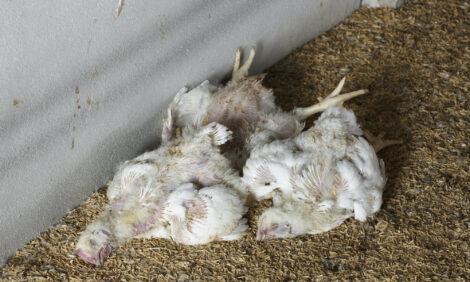



Poultry industry set to recover, union says
EGYPT - As alarm over the avian influenza virus H5N1 has begun to dissipate among the public over recent weeks and with demand for chicken rising, the poultry industry appears set to make a recovery.
"Demand for poultry products has definitely risen over recent weeks, as have sales," said Mohamed al-Shafei, director of the General Union for Poultry Workers.
The poultry industry suffered an unprecedented decline over recent months, starting with the first announcements of avian flu cases among poultry in mid-February and the subsequent culling of at least 20 million birds nationwide to date. Although health authorities have sought to assure the public through various awareness campaigns that the consumption of cooked chicken is risk-free throughout the crisis, the collapse in demand and the mass culling combined brought the industry to a standstill.
"Such has been the collapse that no doubt we will not be able to meet the rising demand to start with," al-Shafei said. "However, any shortage in supply is bound to be short-term. We predict that producers will be able to revive the industry soon enough."
Strict controls on the production and selling of poultry meat, which once constituted the main source of protein for Egyptians, remain in place. "There has been no government decision to lift measures introduced with the arrival of the virus," said Mona Mehris, director of the agriculture ministry's Animal Health Institute. Among these measures are a ban on the sale of live chickens, and a ban on domestic breeding in urban areas.
With poultry sales starting to rise as panic subsides, produce on sale is for the most part frozen and safe to eat. However, some sellers have ignored the ban and continued to sell live chickens, according to witnesses. "The police are in charge of making sure such sales do not take place," said Mehris.
The poultry industry seems set to take on new methods to be able to work within the margins of the safety measures introduced over recent months. "The crisis has brought with it new methods," said Shafei. "For one, the industry will be much better controlled. No longer will we see unsafe culling taking place on small scale levels. Large companies will integrate to work on production together."
To date, infections among birds have been found in 20 of 26 governorates nationwide, according to the health ministry, though the number of cases reported has started to subside. "In recent weeks, we have witnessed a decline in the number of cases reported," said ministry media official Sayyid al-Abbasi. "We have good reason to believe the situation is under control."
However, faced with the continuing prospect that the virus may mutate into new, more dangerous form, health authorities will maintain safety measures. "Until the last virus is eradicated, the risk continues to exist," said World Health Organization's regional adviser for communicable diseases surveillance Hassan al-Bushra.
Fourteen human cases of bird flu have been found in Egypt since mid-March, al-Bushra said. Of these, six have died.
ThePoultrySite News Desk









